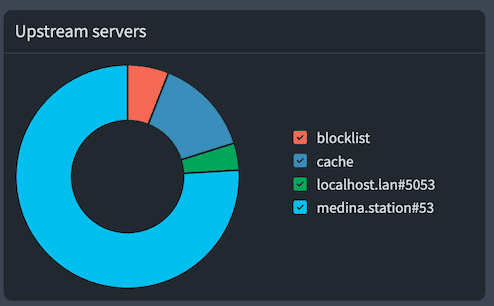The issue I am facing:
Pi-hole is listing my gateway as an upstream server. I cannot tell if this means that some DNS lookups are skipping the Pi-hole or not.
Details about my system:
Gateway: Ubiquiti Cloud Gateway Max
- DNAT rule (to force DNS requests to Pi-hole):
- Protocol: TCP/UDP
- Destination:
192.168.1.3(match opposite) - Destination Port:
53 - Translated IP Address:
192.168.1.3
- Internet Primary WAN1 DNS: Cloudflare Zero Trust IPv4 addresses
- Default network DNS:
192.168.1.3 - all devices with Internet access are on Default network
Pi-hole:
- static IP address:
192.168.1.3 nslookupindicates the address used is127.0.0.1#53- not using DHCP (gateway handles)
- set DNS server to
127.0.0.1usingsudo nmtui
What I have changed since installing Pi-hole:
- installed
cloudflaredto use DoH with my Cloudflare Zero Trust endpoint - Custom DNS Servers:
127.0.0.1#5053 - Multiple adlists and some custom domains
- Some local DNS records
- Disabled NTP
